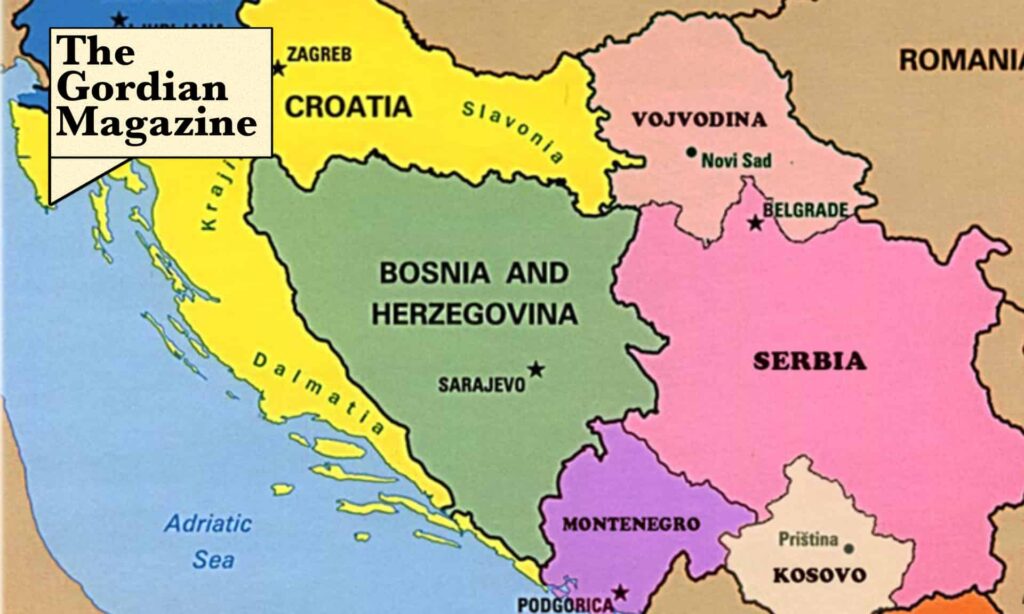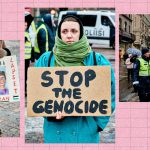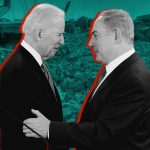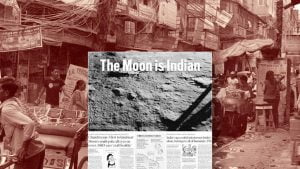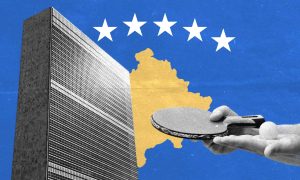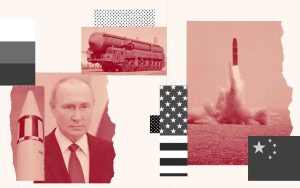When federalism is not enough
When the Socialist Federal Republic of Yugoslavia (SFR Yugoslavia, or simply Yugoslavia) fell apart in the early 1990s, its ruins bred unimaginable chaos and destruction. Even though the founding of the federation dated back to anti-Fascist resistance following the occupation of the Kingdom of Yugoslavia by the Axis powers in 1941, the Kingdom itself had been a precursor to the entity since the end of WWI. In the light of this common history and the predominantly Slavic ancestry, the bloodbath that followed, which dragged on for a decade (1991-2001), seems all the more outrageous.
Moreover, the Balkan Peninsula is nestled comfortably within modern Europe: hardly a setting for genocide, massacres and wonton destruction; and yet, that is exactly what happened. So much for the “social contract” that kept it together. As soon as the opportunity arose, people turned against each other with such merciless bloodlust, that the consequences of the violence are still being felt today.
Yugoslavia can serve as a case study for the frailty of institutions, when these are not founded on understanding and respect. “My territory is better than yours!” “My dialect is better than yours!” “My religion is better than yours!” “My blood is better than yours!”
And so it begins… A federation founded on this sort of mentality is doomed, as the breakup of Yugoslavia made abundantly clear. Religion played a big part, as it often does, with Orthodox Christians (predominantly Serbs), Catholics (predominantly Croats) and Muslims (predominantly Bosniaks) demarking their battlelines. I have written about the Srebrenica genocide in my recent book ‘Unravelling the United Nations’, but that was just one of the many atrocities that defined the Yugoslav Wars.
Twenty years seems like a long time, but as I toured the region this October, the signs of the struggle were still all too visible: bullet-ridden buildings, youth-filled cemeteries and neatly restored landmarks not quite managing to portray convincing authenticity. A tour guide from Croatia told me that last year was the first year that she had a Serbian on her tour, while a young historian from Herzegovina pointed out that as he grew up, almost every building in his town was scarred by the war. I couldn’t help feeling that the people were too.
Tito was not enough
It would be tempting, but naïve, to blame Tito (1892-1980) for the problems by suggesting that he had kept such a tight lid on the festering resentment, that it was bound to explode once he was no longer there to manage it. Tito was indeed a strongman, but a fairly enlightened one. Apart from being a hero of the resistance during WWII, as leader of Yugoslavia he stood up to Stalin by keeping his country out of the despot’s sphere, while also dodging other superpowers by co-founding the Non-Aligned Movement in 1961.
Tito led Yugoslavia from 1944 until his death, both as Prime Minister (1944-1963) and as President (1953-1980). His brand of socialism included an economy that empowered workers to own and manage firms, as well as an openness to foreign visitors and trade. His decentralised policies left federated states with a high level of autonomy which included the right to secede from the union through legal channels if they chose to do so. His achievements were many and they were widely acknowledged, as is testified by his long list of international awards, which include the Légion d’honneur and the Order of the Bath.
In retrospect, however, something was clearly amiss. The end of the Soviet Union triggered a series of events that did not only lead to the fragmentation of the federation, but, as mentioned above, to internecine violence of monstrous proportions. Where did all the hatred come from and could it have been prevented?
Lessons worth learning
In hindsight, it is clear that sound mechanisms of governance are not enough. Imagine a society living with a technology that is so advanced that the slightest misdemeanour would be flagged up. If the penalties were inconvenient enough, people would soon surrender to the imperatives that would make them “good” law-abiding citizens. Should the technology break down, however, mayhem would soon follow.
Nothing can substitute understanding and when it comes to society, and understanding also means open-mindedness, respect, compassion and solidarity. Perhaps Tito’s mistake was that he trusted that the slow pace of evolution would lead people to do what is right. Sadly, when the breakdown came, many did not opt for what was right and many died as a consequence. Leading by example only works when those who are led are bright enough to appreciate the merits of the process and its consequences. Education and keeping people on board requires more effort.
Education, intimidation and brainwashing are very different things. Brainwashing is force-feeding a point of view while suppressing or manipulating the facts; whereas intimidation is pressuring people to follow a certain course because failure to do so would result in real (though orchestrated) or imagined dire consequences. Education, on the other hand, highlights facts, creativity, our shared humanity and harmony.
I am deliberately avoiding the word ‘tolerance’ here, not only because it tends to be condescending, but especially because it is limited, as though one is agreeing to put up with something or someone, knowing full well that often there are limits to how long that ‘putting up’ can last. Tolerance is a wall. That wall fell down around the federated states of Yugoslavia in the early 1990s and all hell was let loose. Yugoslavia taught us some valuable lessons, let us take heed.
The main lesson, then, is that a venture will be successful, in proportion to the genuine support it gets from the people concerned. As Lincoln said: “A house divided against itself cannot stand.” If it is a company working on a project, the team members need to feel a sense of ownership regarding the aims and processes involved. If it is a sports team, players need to be working collaboratively towards the same goal. If it is a political entity, the people need to be on board it if it is to work.
Herein lies the big dilemma: unlike employees in a company or the players in teams, who may have been carefully selected, people come in all sorts of ideological shapes and sizes. Many may be prone to hatred, violence, manipulation or apathy. Millions of people do not care about world peace, human rights, animal welfare or environmental protection. We cannot make them. What we can do is shout out the message, even if it is as a voice crying out in the desert.
Governments, however, are in a better position to be heard. They are in a better position to educate. Nevertheless, governments are also made up of people. It is therefore all the more imperative that those who do have insight speak up, whether they are at school like Greta Thunberg, or holding the highest office. Failure to speak out for justice when you know what justice is, is injustice.
There are no fences to sit on here because the consequences of inaction are too dire. Religious leaders are particularly powerful; they have a ready-made audience. Yet how many prioritise the real issues that affect people, animals and the globe over petty superstitions? Emphasise what divides us and one day it will rip us apart and rip us to shreds as it almost did in Yugoslavia.
So there is a lot of festering behind the scenes, we cannot be sure how much, but evil despots sense it, arouse it and use it. We should beat them to it and try to heal it. That is the education we need and the education we need to impart if we are to prevent further wars and bloodshed. It may seem like a losing battle, but only by fighting it can justice be won in the end.



